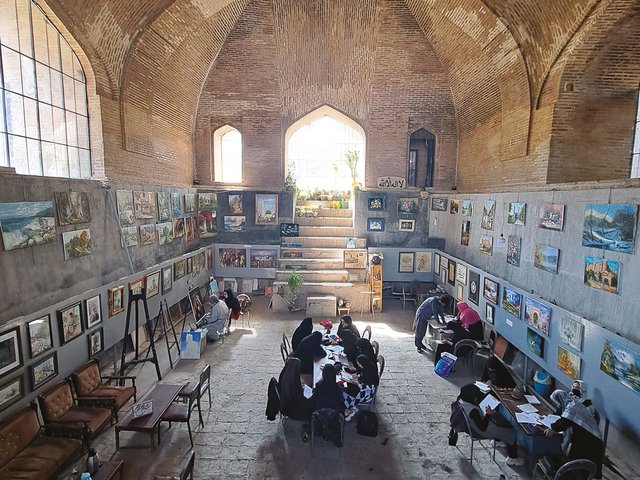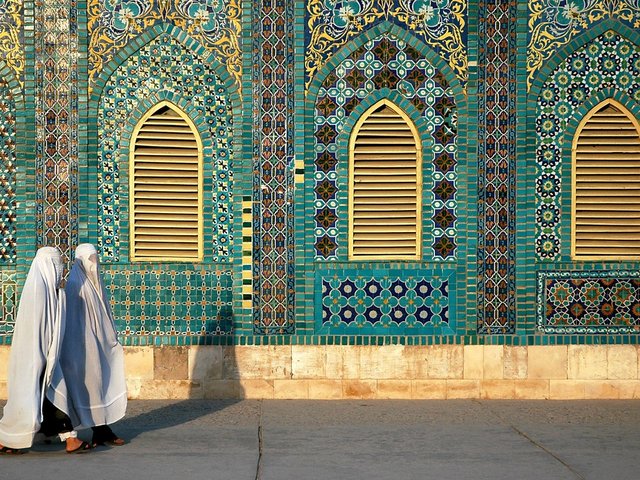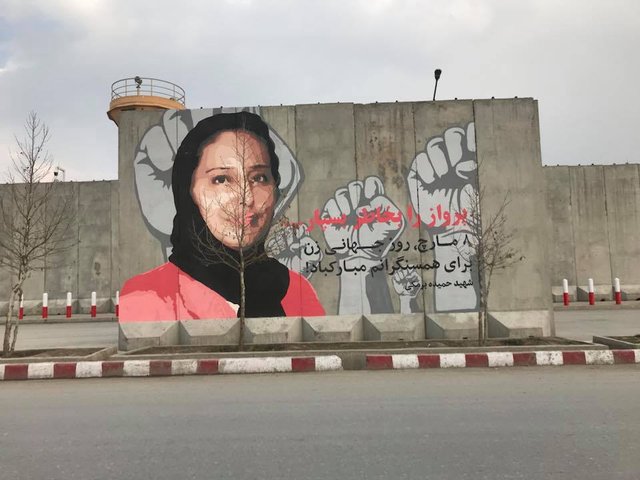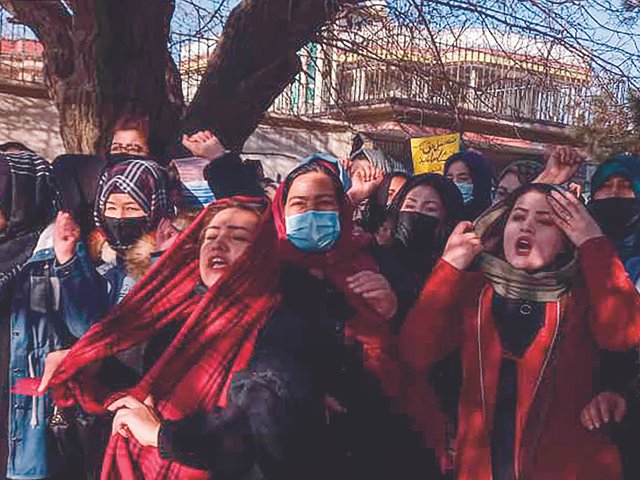Art degrees in Afghanistan are gradually disappearing from government-run institutions as Taliban’s restrictions deter students and scholars from entering higher education. Before the fundamentalist group’s takeover in August 2021, the fine arts faculty at Kabul University offered eight degrees and had more than 1,000 students. Today, however, only two degrees are on offer, with around 250 students attending—all of whom are men. The departments of music, sculpting, dramatic literature and photography were abruptly dissolved, and students were transferred to the remaining four departments: cinema, theatre, graphics and painting.
In late 2022 the government announced restrictions on which university courses could be taken by men and women. Although women accounted for more than 50% of the student body at the art school, the new rules only permitted them to study painting. Men were prohibited from choosing painting and had to pick from one of the three other remaining art degrees. However, by December the Taliban had ordered an indefinite ban on university education for women and the painting department was left empty. Now, the department has ten male students from one of the previous academic years—the minimum required for the degree to go ahead.
Academic exodus
The restrictions imposed on artists—which include an unofficial ban on music, sculpting and portrait drawing—have forced many faculty members to leave the country. Not counting the female staff who are no longer permitted to teach, only five of its 60 staff remain. Although there has been a push to replace the lost expertise, the cinema department has no staff and is at present unable to accept any students for the forthcoming academic year.
The departure of so many talented lecturers has had a negative effect“Mujtaba”, artist
“There is no doubt that the departure of so many talented lecturers has had a negative effect on the students and the quality of the degrees offered by the university,” says Mujtaba, an artist with knowledge of the university’s activities.
Many students have also left the country or abandoned their degrees. “I was supposed to get a degree in painting but there weren’t enough students left in my academic year to continue, so I had to accept being moved to graphics or see all my years of hard work wasted,” says Jalaledin, a Kabul university student. “I had planned to continue my higher education and do a Masters in painting, perhaps abroad, but I don’t know if it will be possible with a degree in graphics.”
Kabul University’s plight is mirrored by the capital’s government-run Institute of Fine Arts and Industries, which offers two-year degrees and can be a stepping stone to study art at university. The institute used to have at least 1,000 students but now has around 100. The ban on women has been particularly detrimental to its operations.
“Art is something that can be practised at home, so it’s natural that more women would be interested; it allows them to work from home, as a hobby or as a career,” says Mohammad, a staff member, who notes that 450 female students applied to study there this year.
The institute was also forced to transfer students from its painting department to graphics because of a lack of demand. “I chose to study painting despite the objections of my family, but now I regret it,” Naser says; he is now looking into studying medicine at a private university when he completes his degree to have, what he calls, a more dependable future. “I will continue making art as a hobby but not as a profession,” he says. “It is obvious that there are no jobs for artists in this country right now.”
The government says that it supports the arts and has held numerous exhibitions, which have included women, but Afghanistan’s grim economy has not been kind to the art market. The lack of foreign support for the arts is also seen as a factor in its diminishing popularity.
“If the foreign institutes that used to offer online courses or opportunities for further studies could collaborate with the universities again it could make a difference and maybe raise interest in the arts,” Mujtaba says.
“Unfortunately, the foreign institutes, like GIZ [the German development agency], that used to support us, have all gone,” Mohammad says. “It is a very challenging time; as it stands, I fear that the institute will be forced to close.”
• Names and some details have been withheld






